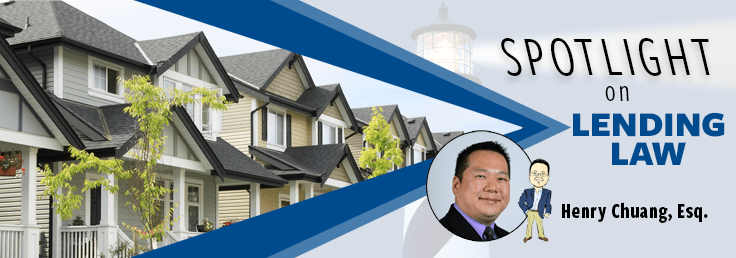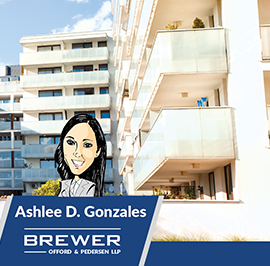Attorney Henry Chuang of Brewer Offord & Pedersen LLP prevailed in a 2015 bench trial in Alameda Superior Court. During the trial, attorney Chuang successfully defended his client — a loan servicer — against claims of loan fraud and predatory lending. The trial victory allowed the client to proceed with the foreclosure of a four-unit residential property in Berkeley, while attorney Chuang was awarded 100% attorney fees and costs.
Background
Hard money lenders provide financing for borrowers who are left out of the conventional lending process, and offer supplemental loans to help complete real estate deals. These kinds of lenders typically take a second position to the lender of the primary loan, which is typically a bank. When a borrower recently defaulted on two loans secured by a four-unit residential property in Berkeley, the hard money lender in second position faced the possibility of being wiped out by the foreclosure initiated by the institutional lender in first position. Brewer Offord & Pedersen LLP stepped in to help protect the client — first by reinstating the first loan, and then by defending claims of predatory lending and fraud lodged by the borrower.
Legal Strategy
- Helped client avoid being wiped out in foreclosure by reinstating first priority loan
- Bolstered case that loan was commercial by using a real estate expert
- Discredited opposing arguments with analysis of case law
Defending Lender From Predatory Lending Claims
After defaulting on two loans — one serviced by a hard money lender — the borrower was served with notices of default. The borrower reinstated the hard money loan, but failed to reinstate the institutional loan. To avoid being wiped out in foreclosure, our client reinstated the first loan, and then started the foreclosure proceedings for the second loan. The borrowers challenged the foreclosure, claiming that the hard money lender did not have the right to foreclose, since the first-priority loan was no longer in default. The borrowers additionally alleged that our client committed loan fraud, claiming that the loan was a consumer, not a commercial, loan. As a consumer loan, the borrower argued that the loan was predatory, since our client charged higher fees and did not provide appropriate disclosures. The case went to trial, and attorney Henry Chuang prevailed against both of the borrower’s claims. To prove that the loan was commercial, attorney Chuang utilized an expert witness’ testimony and compelling analysis. He challenged the owner’s arguments that the loan was for a consumer purpose by demonstrating how rent proceeds were the sole source of income for the owner, and that the owner actively managed the property as a rental.
Results
- The ruling held that our client did not engage in predatory lending and thus should be able to proceed with the foreclosure process
- The judge awarded our firm 100% attorney fees — a rarity in lending law — stating that our charges were fair and appropriate
*Past performance does not guarantee future results. Reproduced with client permission. Terms found in the website legal disclaimer apply to this page and any attachments.





